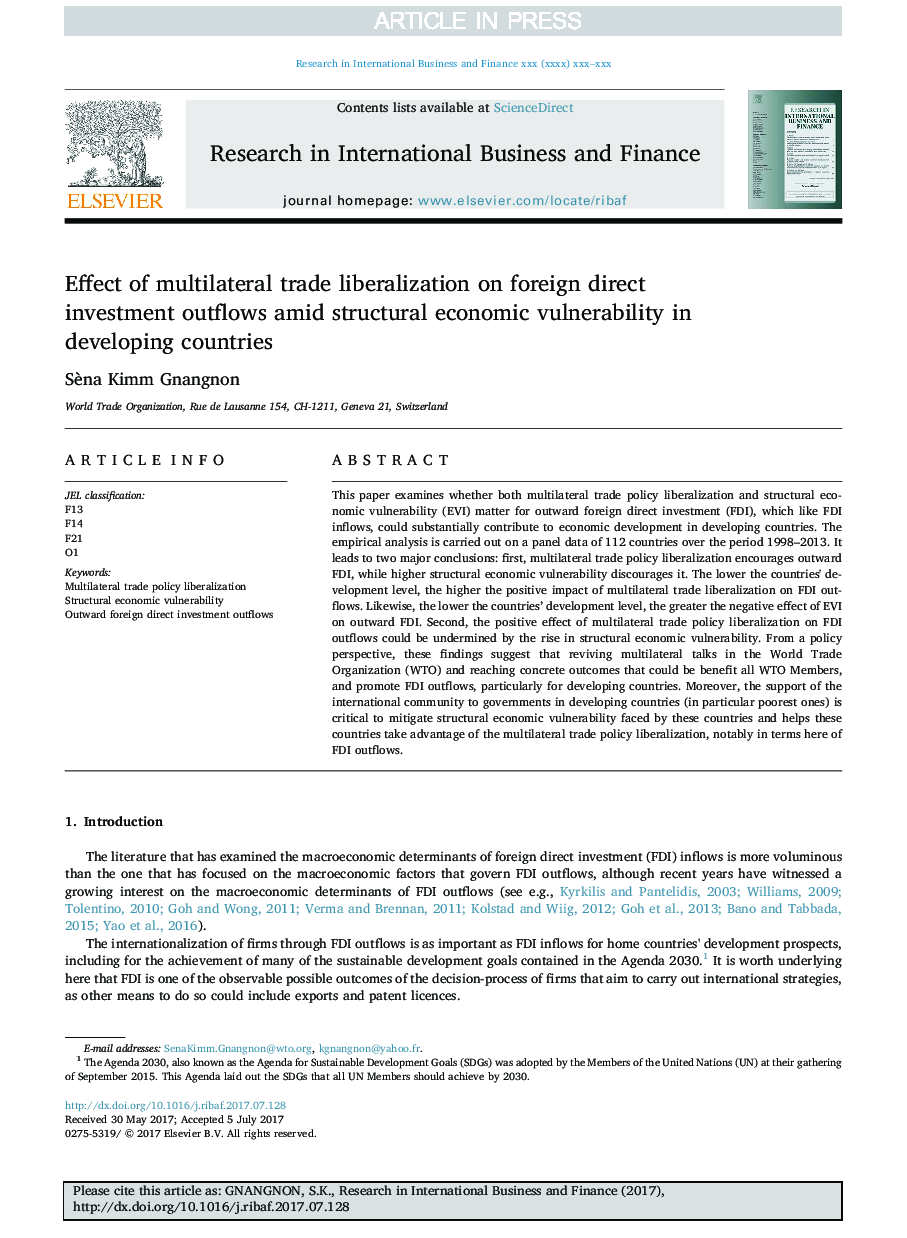| Article ID | Journal | Published Year | Pages | File Type |
|---|---|---|---|---|
| 7413678 | Research in International Business and Finance | 2018 | 15 Pages |
Abstract
This paper examines whether both multilateral trade policy liberalization and structural economic vulnerability (EVI) matter for outward foreign direct investment (FDI), which like FDI inflows, could substantially contribute to economic development in developing countries. The empirical analysis is carried out on a panel data of 112 countries over the period 1998-2013. It leads to two major conclusions: first, multilateral trade policy liberalization encourages outward FDI, while higher structural economic vulnerability discourages it. The lower the countries' development level, the higher the positive impact of multilateral trade liberalization on FDI outflows. Likewise, the lower the countries' development level, the greater the negative effect of EVI on outward FDI. Second, the positive effect of multilateral trade policy liberalization on FDI outflows could be undermined by the rise in structural economic vulnerability. From a policy perspective, these findings suggest that reviving multilateral talks in the World Trade Organization (WTO) and reaching concrete outcomes that could be benefit all WTO Members, and promote FDI outflows, particularly for developing countries. Moreover, the support of the international community to governments in developing countries (in particular poorest ones) is critical to mitigate structural economic vulnerability faced by these countries and helps these countries take advantage of the multilateral trade policy liberalization, notably in terms here of FDI outflows.
Related Topics
Social Sciences and Humanities
Business, Management and Accounting
Business and International Management
Authors
Sèna Kimm Gnangnon,
